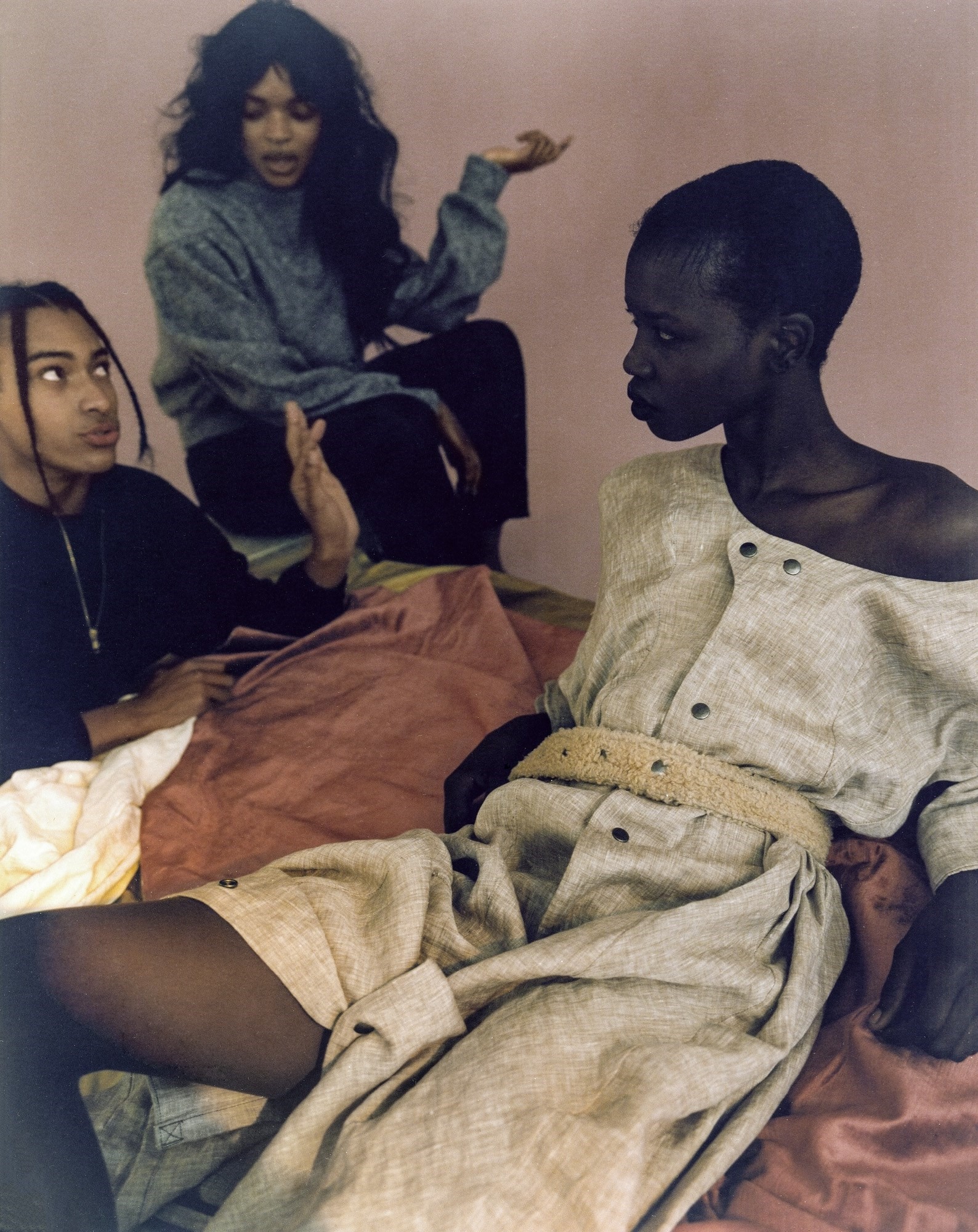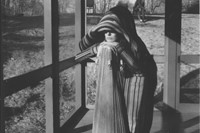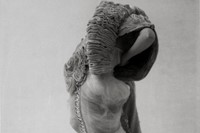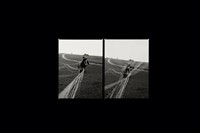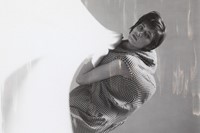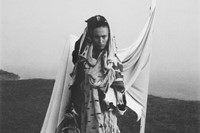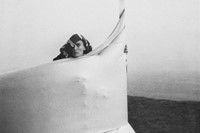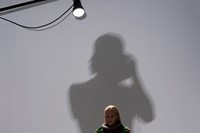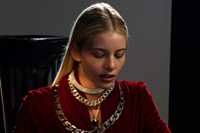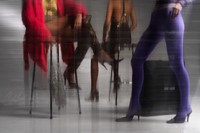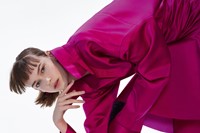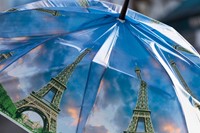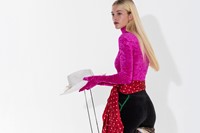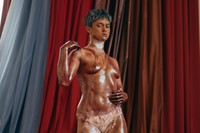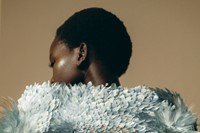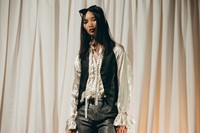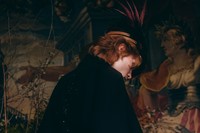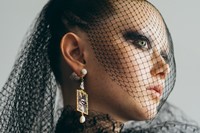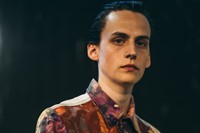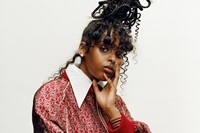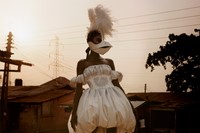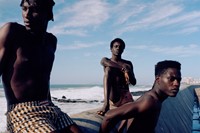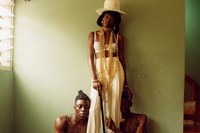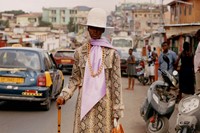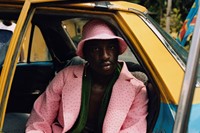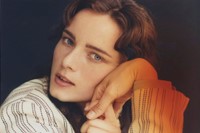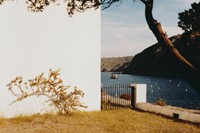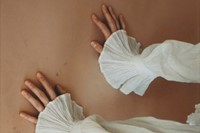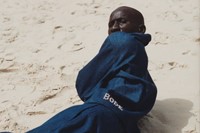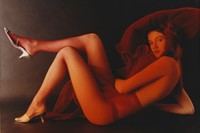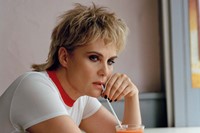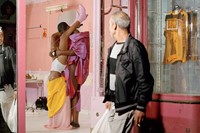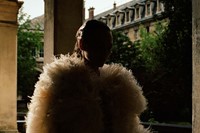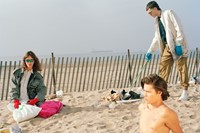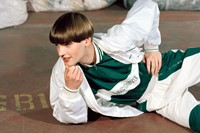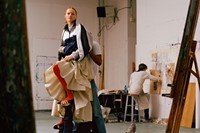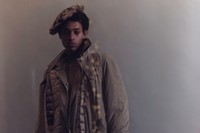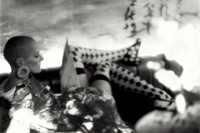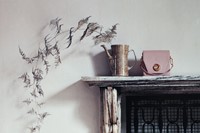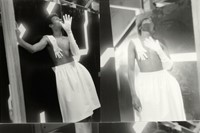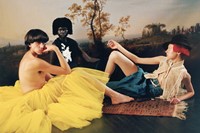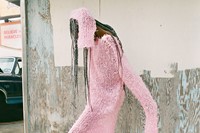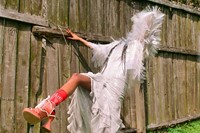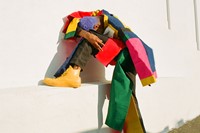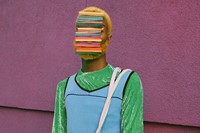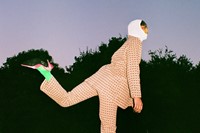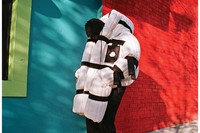This week, 19-year-old Norwegian editor and publisher Elise By Olsen (Recens Paper, Wallet) is the guest editor of AnOthermag.com, presenting a series of articles exploring the current and future state of fashion and art publishing. Alongside conversations with publishers, critics and image-makers, this guest edit offers an intimate insight into her own publications and working practice.
While I am devoted to the written word in the context of fashion publishing, I am increasingly obsessed with the practice of fashion image-making. While that might sound like a contradiction, I am fascinated by the way fashion images contribute to the wider culture of fashion. A tool for storytelling and visual commentary, they have the power to create experiences, document eras, cultures and subcultures; they can spark discussion and set the agenda. Defining style as we know and understand it, fashion photography is so much more than just images of clothing on the body.
Fashion images are a big part of the projects that fashion publishers undertake – both online and on the printed page – but they also live in spheres beyond websites and magazines; they exist on Instagram and other social media platforms, on advertising billboards and in art galleries. But, in a time where everyone can produce and present their own imagery, where does that leave the role of the fashion image-maker? This is something I wanted to examine as part of my AnOthermag.com guest edit. Here, I spotlight eight emerging photographers that I think are pushing the constraints of fashion imagery and shaping the field for tomorrow.
Zhi Wei
Currently based between New York and Singapore, Zhi Wei (b. 1992) is drawn to projects which involve working with the archive of a single designer, visualising the creative trajectory of one person and responding to these developments in his photography. It’s a given that, at this moment in time, so many incredible archive images from the 80s, 90s and early 00s are reproduced and experienced online, and that contemporary imagery will exist alongside this material. Wei is interested in the dynamic that this creates. “I think this is what draws me to making fashion images – where I can craft images for exhibition contexts or the printed page – but I’m also very aware of the fact that these images will be disseminated to a huge audience online,” he says. More often than not his shoots incorporate performative and sculptural elements. This ties into his art practice, in which he consistently references the religious and ritualistic practices he grew up with. And a lot of his shoots are oblique self-portraits: “I find it much easier to shoot clothes that I’d wear myself,” he says. “I’m really hands-on with set design as well, and I’m always trying to find ways to form a literal connection between the camera, set and subject. I think it’s about making an invisible presence felt.”
Marc Asekhame
Marc Asekhame is a Swiss-born, Paris-based photographer whose practice shifts between fashion, architecture, still life, documentary and photographic essay. Blurring the boundaries between artistic and commercial photography, Asekhame is predominantly interested in presenting his work in the medium of the magazine, whether in his own art magazine Periodico or in other titles. When asked to define his work, he refuses to define his practice with a particular style. “My work is not solely based on the aesthetic attributes of an image, but incorporates the tools, the concept and the context under which an image is produced into the artistic realm of my photographs,” he says.
Inés Manai
Inés Manai (b. 1994) is a Paris-based photographer whose work evades simple categorisation, flitting between fashion, portrait, documentary and even still-life photography. She’s created a name for herself shooting candid backstage imagery at fashion shows, photographing collections with a softness and beauty – as well as capturing moments of humanity amid the madness. “When I’m shooting backstage, I’m constantly thinking of the environment and context that me and the models or other subjects are in and how, in a way, I can extract them from it, in order to create an intimacy and proximity very particular to that instant,” she says. “Just a particular look, or a certain gaze, or glimpse of emotion can define a whole piece of work. There is this safeness in the air that gives way to an openness or vulnerability in the models that allows them to show these same emotions.”
Kyle Weeks
Originally from Namibia, Kyle Weeks (b. 1992) attended the Stellenbosch Academy in South Africa, where he obtained a bachelor’s degree in photography in 2013, and now lives in Amsterdam, working between Europe and Africa. By prioritising the lived experiences of a diverse group of individuals, his photographs maintain his subjects’ agency while fulfilling his role as a creative photographer. This method rings true in his personal practice, where Weeks challenges the traditional relationship between subjects and documentary image-makers, touching on the pervasive nature of colonial dynamics. These personal pursuits seamlessly influence his fashion and culture commissions, which are celebrated for their unflinching departure from historically white-washed fashion imagery. Having started his career making documentary work with strong elements of style, Weeks says that making fashion imagery felt like the next natural progression. “At some level fashion has this ability to cross social and cultural boundaries and I think if I can use that to get my work in front of people, to mould perceptions or question outlooks then it’s served its purpose,” he explains.
Christian Colomer
Christian Colomer (b. 1990) started shooting at an early age but it wasn’t until he moved to Barcelona and embarked upon his film studies degree that he began shooting in a more emotional way. And while he focused on still life imagery after graduating, he’s now turned his attention to fashion photography, in addition to portrait and documentary work. In fashion photography though, he’s found a tool to explore his everyday life, elevating the ordinary into something altogether more extraordinary.
Reto Schmid
Described as “a photographer with an eye for subtle hilarity”, Swiss photographer Reto Schmid (b. 1983) divides his time between Paris and Zürich. A graduate of Switzerland’s ECAL, his highly-polished style stems from his photographic skill and cross-disciplinary approach, and he often tries to introduce unexpected elements in his often humourous work. “[I aim] to push the boundaries of fashion imagery and take inspiration from all sorts of contexts,” he says. Shooting for both emerging and established publications, Schmid produces crisp, playful photo essays that have caught the attention of major brands including Gucci and Louis Vuitton.
Étienne Saint-Denis
Étienne Saint-Denis (b. 1991) is a photographer based in Montreal, Canada, where he’s currently studying, and produces still lifes as part of his personal work. Employing a craftsman-like approach to his practice, his portfolio is experimental and full of nuance. “For my part, fashion image-making is a spectrum that allows a sense of freedom,” he says. “What captivates me is the space that values reflection to technical aspects, craftsmanship, details and approach, unlike – let’s say – an artistic practice where the standards for valuable photographic qualities are measured based on the photographer’s intentions or whatever fits the art scholar’s agenda.” There is also the narrative dimension (or lack of) to fashion stories and images – how two different images in a story are linked together. “In my creative process, I like the idea of deconstructing the narrative, to invite the viewer to tie the images together based on their own emotional experience of the series. I feel like it creates a certain bond with the images that elevate the whole story.”
Arielle Bobb-Willis
Born and raised in New York City, along with stints in South Carolina and New Orleans, photographer Arielle Bobb-Willis (b. 1994) expresses the desire to claim power and joy from moments of confusion or confinement. Bobb-Willis applies a painterly touch to her photographs, which document people in compromising and disjointed positions, while highlighting the complexities of what it truly means to feel comfortable with discomfort. Interestingly, she never seeks to make people look cool or stylish: “It’s always been about creating a space where I can study shape, colour, and build a composition that makes sense to me,” she says. “Going to thrift and 99 cent stores, searching the aisles for hours, and eventually getting lost in the random possibility of it all is one of my favourite parts of creating. Finding a bag of popsicle sticks or a fitted bed sheet is, in my opinion, a very unfiltered and fulfilling way to approach each shoot. Fashion allows me to do that but on a grander scale.”
